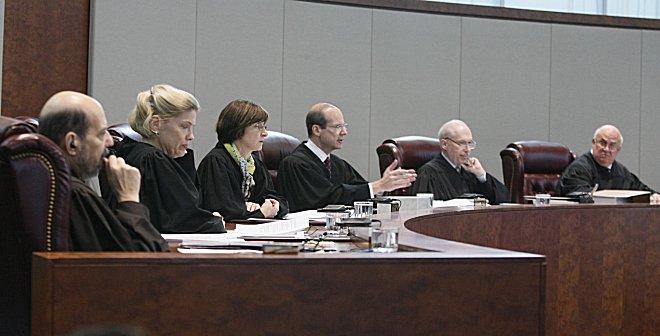New Jersey Supreme Court says no to removing names from registry
Two offenders identified only as H.D. and J.M. pleaded guilty to sexual offenses in the 1990s and guilty in 2001 to other offenses, one for computer-related theft and one for failure to register as a sex offender, and were sentenced to probation.
State law imposes lifetime registration requirements on offenders but allows those on the registry to apply for removal if they haven’t committed a crime within 15 years following “conviction or release from a correctional facility for any term of imprisonment imposed” and are “not likely to pose a threat to the safety of others.”
H.D. and J.M. argued they are now eligible for removal since neither has had a conviction for more than 15 years, since 2001.
The state disagreed, arguing that the law bars anyone on the registry from seeking removal if they commit any crime within the first 15 years following conviction for the underlying sex offense.
But the appeals court wrote in 2018 that the relevant portion of the law is ambiguous, not regarding when the 15-year requirement starts, but “whether the clock may ever reset.”
In its 7-0 ruling posted Tuesday, the Supreme Court disagreed, writing that the statute’s language “plainly refers to the conviction or release that triggers the registration requirement.”

